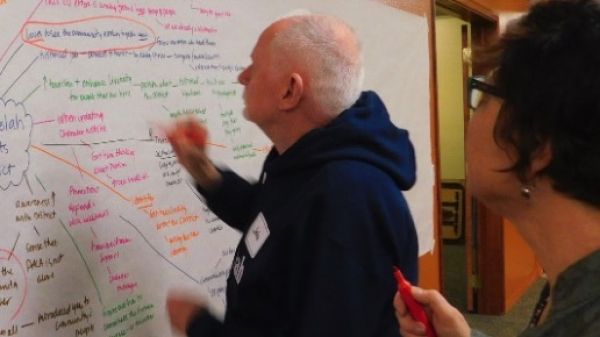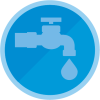Ripple Effects Mapping — Capturing the Stories of Impact in Community Programs Online Course Oct-Nov 2020

Harbinger is pleased to offer this course with REM Studio — a consulting and training collaborative that supports community and organizational change using Ripple Effects Mapping (REM).
Every community program has impacts, but they can be difficult to identify and substantiate—especially when program implementation is multifaceted and evolving. These effects usually play out over the course of months or years, and by the time a real evaluation makes sense, it’s hard to connect new knowledge, changed behaviors and the host of direct and indirect impacts that your program may have fostered. Ripple Effects Mapping blends appreciative inquiry and mind mapping to measure a broad range of program impacts, even years after initial activities have taken place.
Pre/post evaluations and follow-up surveys usually don’t do a good job of capturing all the indirect “ripple effects” of the original program, leaving you with a thin understanding of the real impacts. Here’s an example: in a post-workshop evaluation, someone who takes a leadership course might credit the knowledge and confidence gained with starting a community garden. But what about the programs and spin-offs that resulted from the garden or the collaboration with partners—things like youth activities in the garden, cookbook sales to support projects, a partnership to provide fresh produce to a local food bank, new life for a master gardener program, or a boost in local home gardening?
These are the kinds of in-depth stories and impacts that help you understand your program’s true effects, fine-tune for the future, and show funders and partners how their impact has rippled out through the community.
In this action-packed, three-session online course, you will learn to use Ripple Effects Mapping from its creators:
- Observe an online REM session to understand the flow and core techniques.
- Discover the benefits of using REM and when it is an appropriate tool for program evaluation.
- Dive deep into the REM process, theory and implementation tips.
- Learn to plan and conduct a REM evaluation step-by-step using the planning tool we created specifically for this course.
- Ask questions and get advice on specific aspects of REM that are most important to you.
An optional fourth session focuses on data analysis:
- Explore ways to code and analyze data from REM.
- Learn how to present the results back to the community, decision-makers and program investors.
By the end of this workshop, you will know how to use REM to track the direct and indirect impacts of your program with a side benefit of engaging and energizing program participants.
WHO IS THIS FOR?
Extension & community development professionals • Community and service organizations • Chambers of Commerce & business alliances • Place-based & conservation organizations • Historic preservation groups • Downtown & Main Street groups • Community leaders • Consultants & facilitators • Program evaluators
COURSE INSTRUCTORS
Debra Hansen — Originator of the REM method. Stevens County Extension Director and Professor with Washington State University, REM Studio Collaborative
Lorie Higgins — Extension Community Development Specialist and Professor of Rural Sociology at the University of Idaho, REM Studio Collaborative
Rebecca Sero —Extension Evaluation Specialist and Associate Professor at Washington State University, REM Studio Collaborative
Michele Archie — Community economics and engagement lead at The Harbinger Consultancy
SESSION DATES AND TIMES
Three weekly classes Thursdays, October 22-November 12, 2020
October 22 and 29 — 7-9 p.m. ET/4-6 p.m. PT
November 12 — 7-8 p.m. ET/4-5 p.m. PT (one-hour Q&A and coaching session)
Optional data analysis session
November 5 — 7-9 p.m. ET/4-6 p.m. PT
FEES & DETAILS
Sessions available for replay in case you need to miss a session or want to review.
Course fees:
- $250 for the three-session course + $100 for the optional data analysis class
- Group discount for two or more participants from the same organization or community — $225 course + $80 optional class
Early registration discounts through October 8:
- $225 for the three-session course + $80 for the optional data analysis class
- Early registration group discount for two or more participants from the same organization or community — $200 course + $50 optional class




